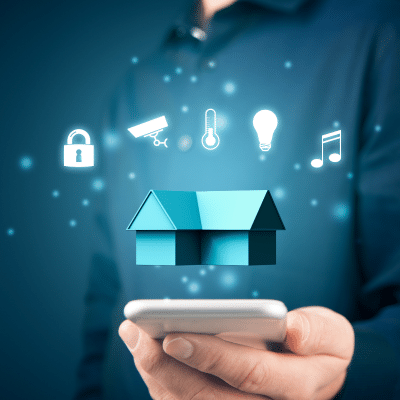D
- Data Analytics
- Data Loss Prevention
- Data Migration
- Data Platform
- Data Privacy
- Data Science
- Data Transformation
- Deep Learning
- Definition of Protocol Analysis | OrangeMantra
- Denial of Service (DoS)
- Dependency Scanning
- DevOps
- DevSecOps Pipeline
- Digital Engineering
- Digital Forensics
- Digital Transformation
- Disaster Recovery
- Distributed Version Control System (DVCS)
- Dynamic Application Security Testing (DAST)
Smart Home
Simple Definition for Beginners:
A smart home uses internet-connected devices to manage and control household systems like lighting, heating, security, and appliances, making life more convenient and efficient.
Common Use Example:
A smart home system allows a homeowner to control lights, thermostat, and security cameras remotely using a smartphone app.
Technical Definition for Professionals:
A smart home is an automated residential environment where devices and systems are interconnected through the Internet of Things (IoT) to enhance living conditions, improve energy efficiency, and increase security. These smart devices, such as thermostats, lighting systems, security cameras, and household appliances, communicate with each other and can be controlled remotely via smartphones, tablets, or voice assistants like Amazon Alexa, Google Assistant, and Apple Siri. Smart homes utilize sensors, AI, and machine learning to adapt to residents’ preferences, optimize resource usage, and provide real-time data and alerts. Key aspects include interoperability, data security, user-friendly interfaces, and seamless integration with existing home infrastructure.
Smart Home

